What if the State held a meeting about the future of our outdoor recreation and no one went? How would we know how our parks, beaches, woods and trails were being managed, purchased or changed? Public participation in public policy is tricky since couches are more comfortable than podiums and screaming at the nightly news doesn’t come with a newspaper guy taking notes.
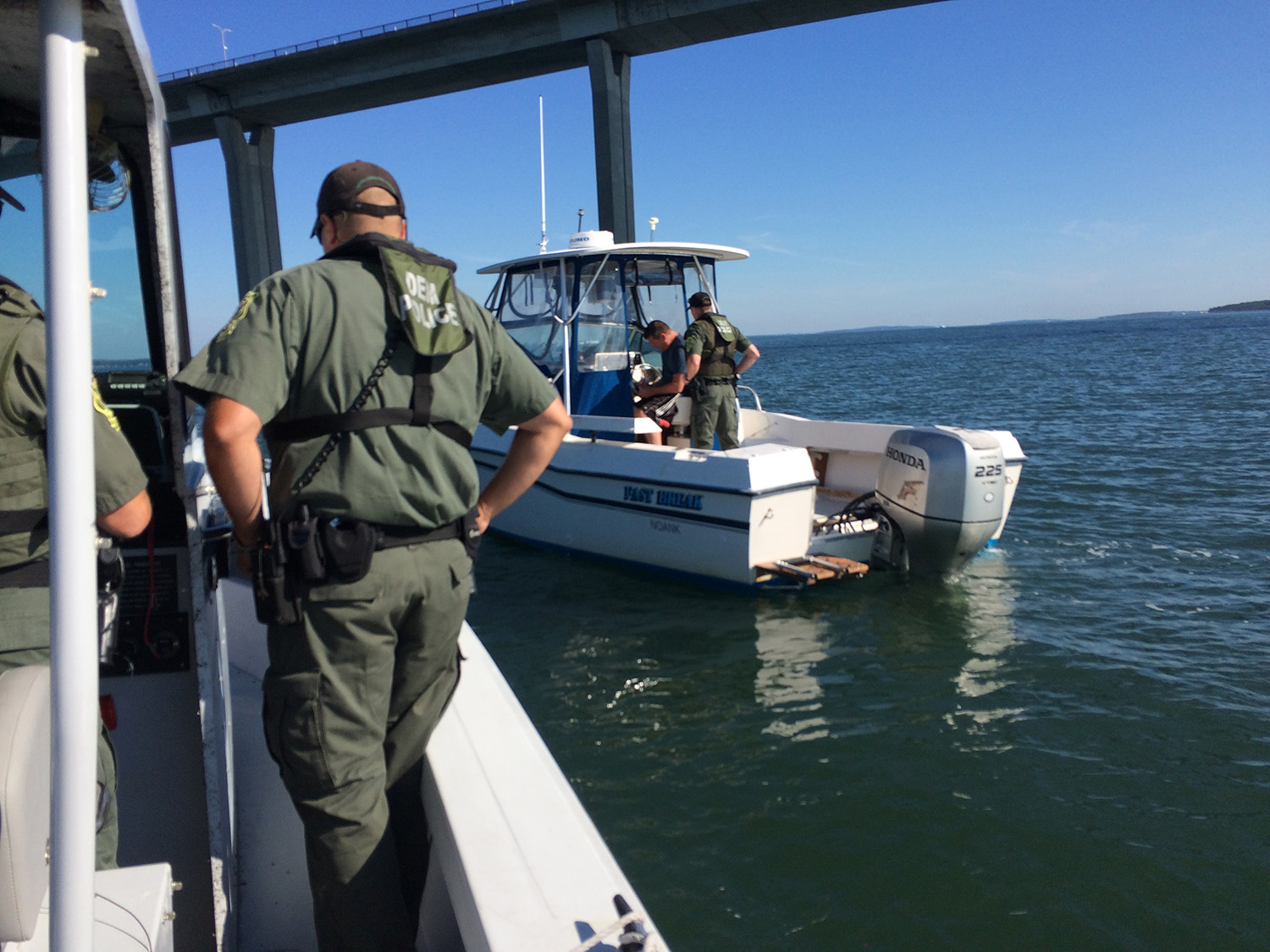
RIDEM Law Enforcement Officers inspect a recreational fisherman for his license, which really isn’t too much to ask. They need your voice to keep increasing their funding.
Our RI Division of Statewide Planning, James Riordan, Weston and Sampson’s Senior Project Manager and RIDEM and held two public meetings to discuss their extensive work with Rhode Island’s Statewide Comprehensive Outdoor Recreation Plan, or SCORP. The short story on SCORP is that to purchase and maintain public recreation areas, the federal government provides some funding and we the people agree to secure bonds.
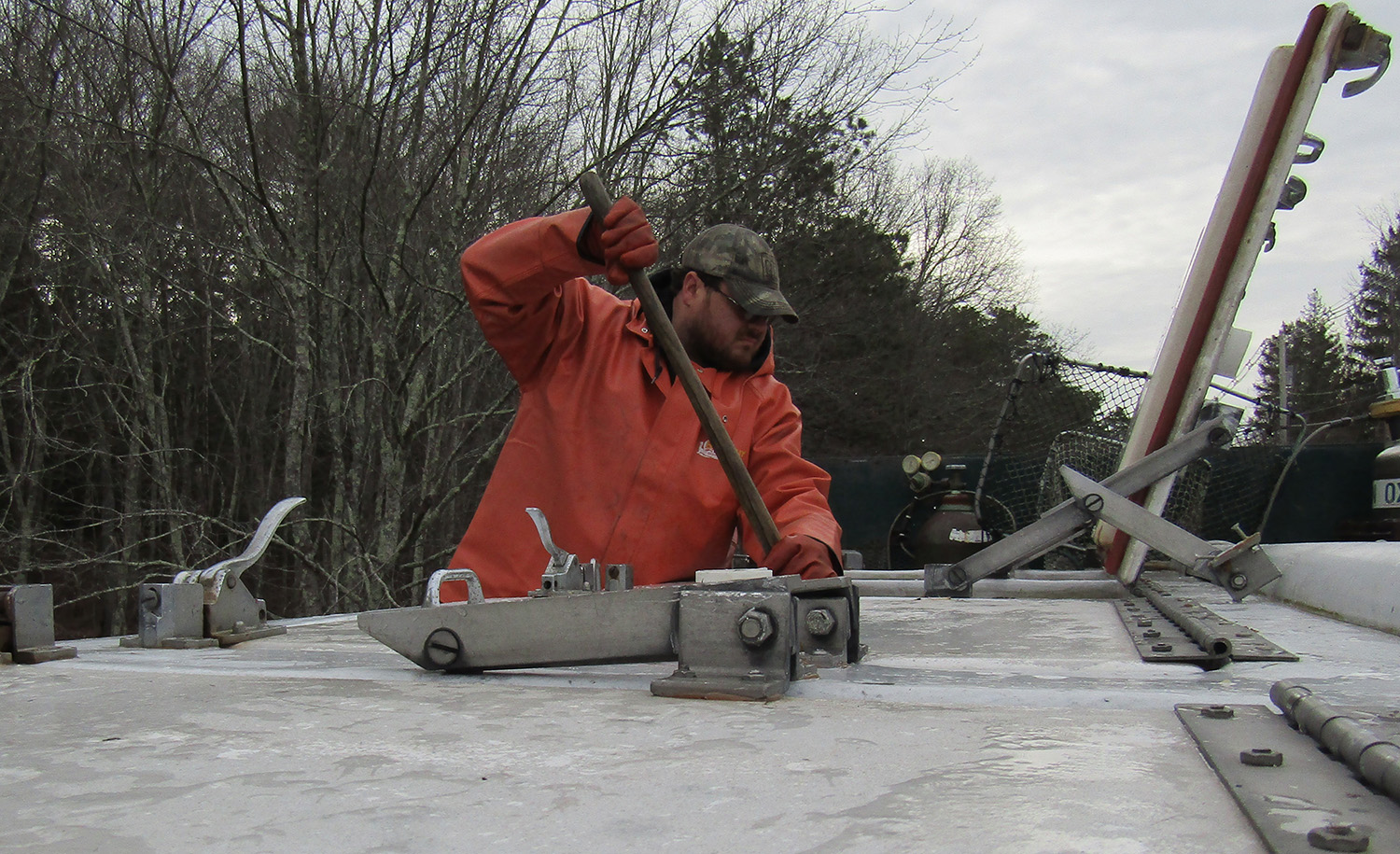
James spoons the trout to us but we need to be involved in the process as well.
The State identifies needs and successes, develops action plans and bullet points, then tips the whole cart over to users of all that land for their ideas, thoughts and concerns. The final plan becomes integral to the State’s comprehensive plan, local municipalities are required to adjust their own comprehensive plans to reflect changes while our job is to respond to keep the process healthy and relative. With the exception of one particular meeting, which unfortunately came without refreshments or attendee other than me, public participation has been decent.
In 2016, The Ocean State had 9.4 million visits to our parks, creating $311.9 million in consumer spending which supported 3,709 jobs and delivered $38.8 million to the state’s coffers. Somehow we have $50 million in infrastructure costs relating to “aging facilities and deferred maintenance.” Can someone say “bridges?” The SCORP paperwork notes that 70% of us head outdoors to get exercise and maybe lose some weight and as of 2014, 63% of Rhode Islanders were overweight. Chew on that for a while. Some older folks expressed a need for more places to play something called pickle, of which I was not familiar, which made me feel young, if not just for a moment. 91 people attended meetings in person, but nearly 1000 were engaged online. “It’s sort of the evolution of how people react these days,” said Sheehan. The SCORP journey included a website, online survey maps and 11 round table sessions. Over 100 people participated in focus groups. 573 general public survey responses came as result of their online surveys. Only 28 of 39 Recreation Supervisors answered the survey.
That’s interesting.
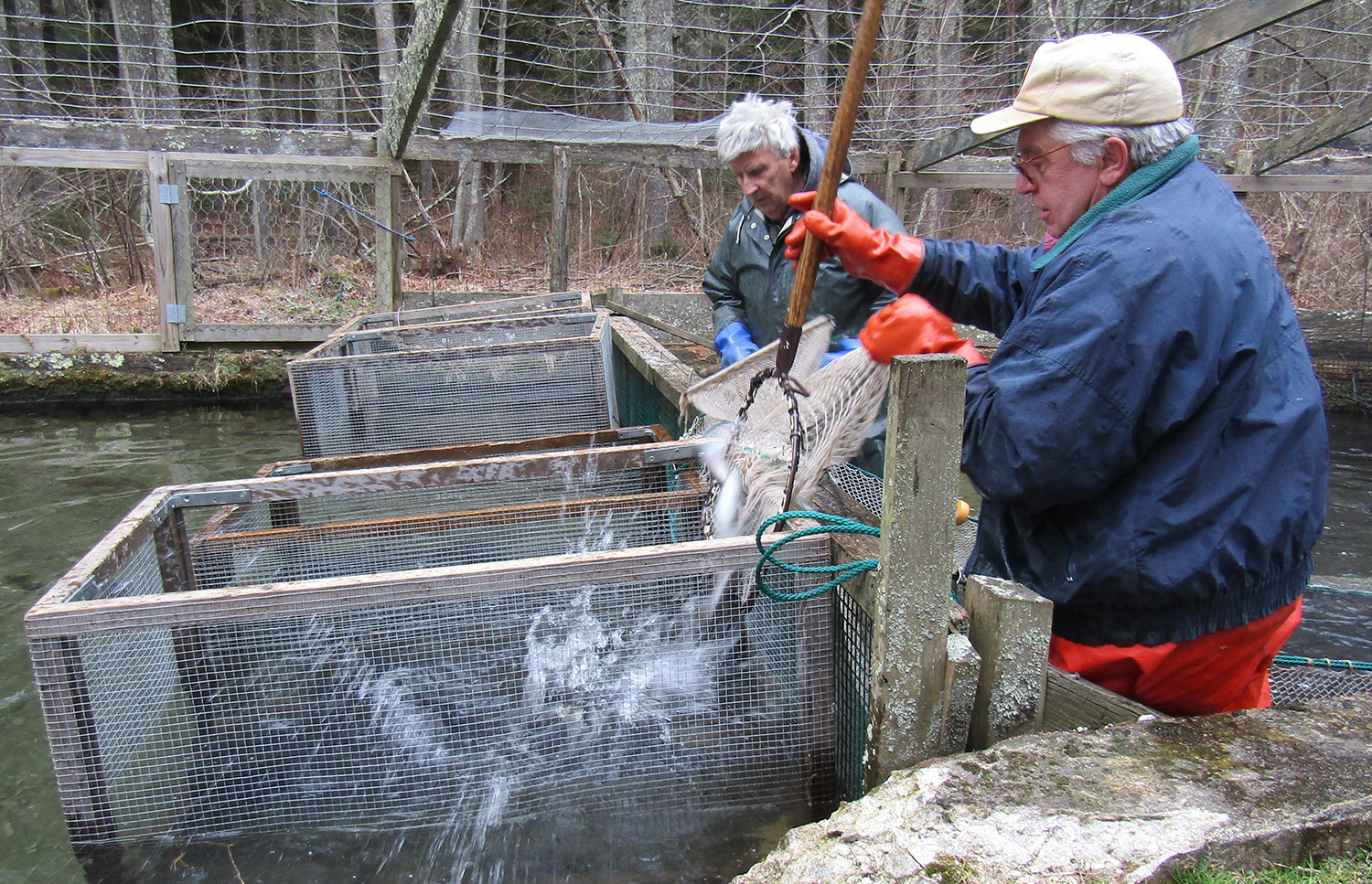
Trout don’t come easy or cheap
“850 people participated. We got a huge amount of response to the Online Survey Map,” said Michelle Sheehan, Programming Services Officer at DEM’s Planning and Development division. She was referring to their very cool mapping program, where people could identify places and offer comment. There are a lot of pins on that map.
An interesting aim of the SCORP is to, “Improve access to safe and inviting outdoor recreation opportunities through targeted upgrades to recreational infrastructure where there are known gaps.” One known gap is in the State’s contribution to park rangers, staff and their own environmental police officers. The most recent study of our outdoor system saw a huge decrease in staffing, from 123 persons to 42. That’s a drop of 67% since 1989, coupled with a 37% increase in beach visitation. That’s a surreal ratio, or should it be ration, of one staff person to every 67 maintained acres. It mirrors DEM law enforcement’s situation. At last check, 31 officers patrol approximately 1212 square miles of land, 40,000 acres of state-owned forests, 384 miles of tidal shoreline and more than 20,000 acres of ponds and lakes. It would be a benefit to all of us when budgets go through the bureaucratic sausage machine, DEM Law Enforcement gets sufficient monies and personnel to keep us safe while we recreate, communicate and maybe lose some weight.
Data indicated we think our beaches, access to the shoreline, trails and camping facilities are properly managed, that communication between the State and outdoors women and men is lacking, maintenance and signage could use some improvement and there’s need for better coordination between the state and people who access or would like to access these assets. You should hear some of the communication from people when they find out how much it costs to go to our beaches.
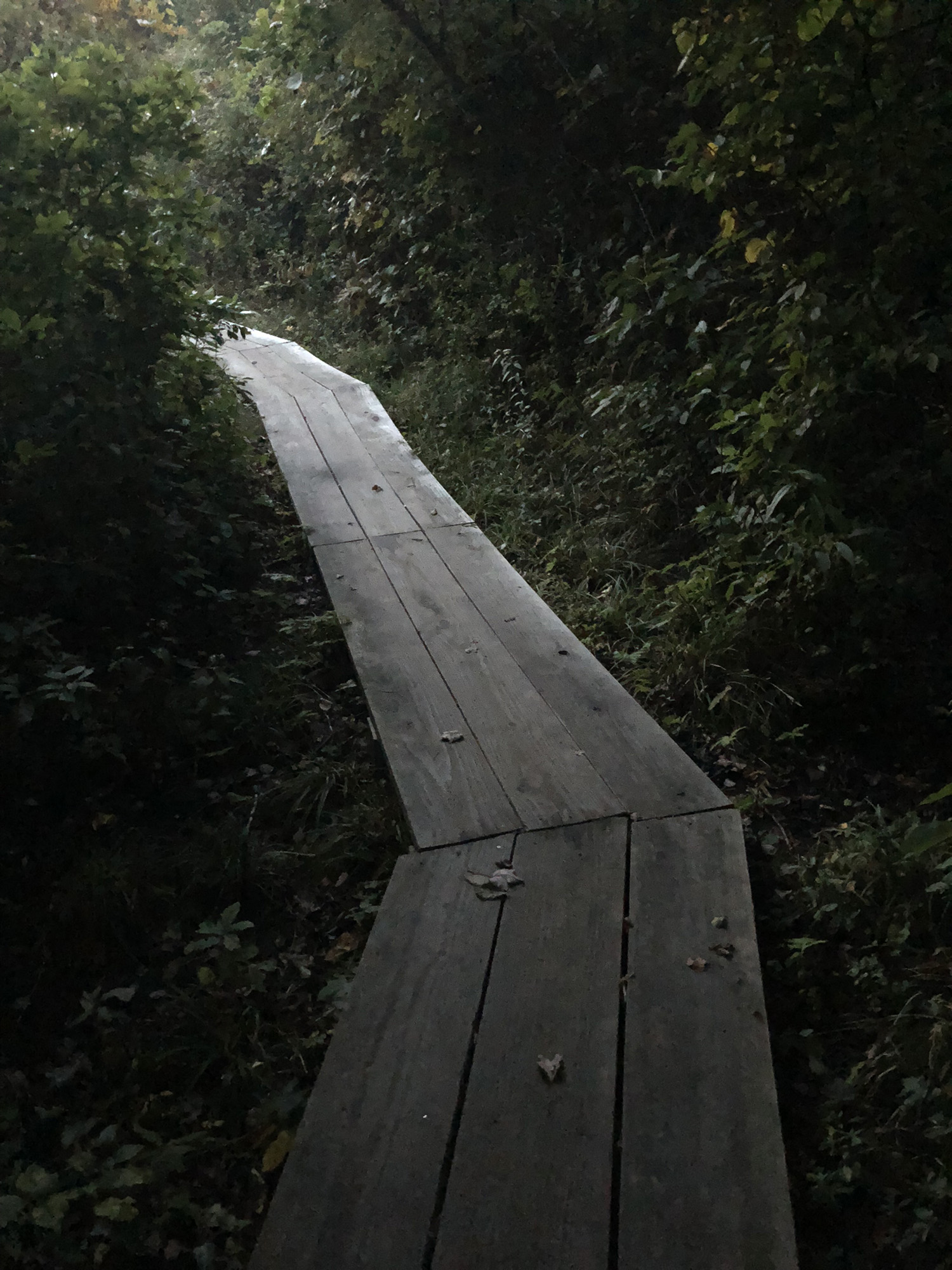
All roads lead home, right? If we want to keep special places like this, we need to speak up.
People also noted a lack of ATV trails, swimming lessons, gear outfitters, “integration of historic context at recreation sites,” and “better opportunities for residents when compared to tourists.” That last one is an interesting observation, as we build an economy based on attracting more and more people from away.
“We’re building a culture of outdoor recreation; we have so many great assets in this state,” said Nancy Hess, Supervising Planner with the Department of Administration’s Division of Statewide Planning, referencing recent land bonds and acquisitions. Hunters felt the State has done a good job securing lands to continue the traditions of hunting. One challenge might be to encourage non-hunters to dress appropriately while hiking on public lands which quite often are purchased with taxes on hunting and fishing gear.
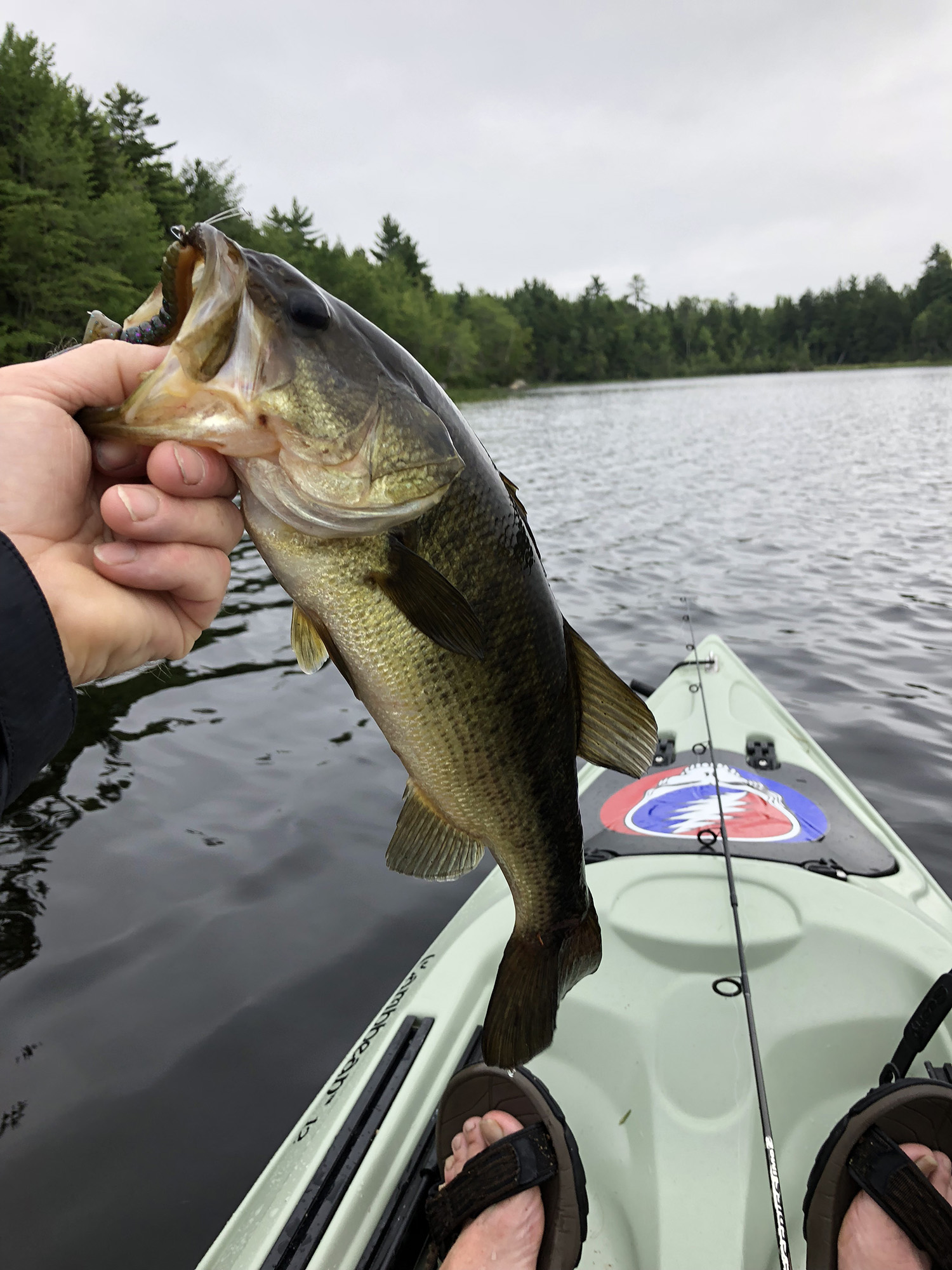
sweet bass, sweet water.
Some funding for trail maintenance and creation comes from federal highway taxes. According to the SCORP, our State Recreational Trails Plan works in conjunction with RI’s Greenways Plan which is guided by the US Department of Transportation’s Federal Highway Administration’ National Recreational Trails Program and the Wetlands Priority Plan governed by the federal Emergency Wetlands Conservation Act. It’s easy to see why you can’t get a parking spot in D.C.
The three planners thought the SCORP process might be completed in September but there’s still time to comment through the DEM website. My takeaways were that an enormous amount of work has been dedicated to improving our public lands, it would have been better to have the plan printed on both sides, that the internet will be key to communicating with our resource users and that public lands remain our birthright. We can never have enough public land.
Or refreshments, like GORP, at meetings.

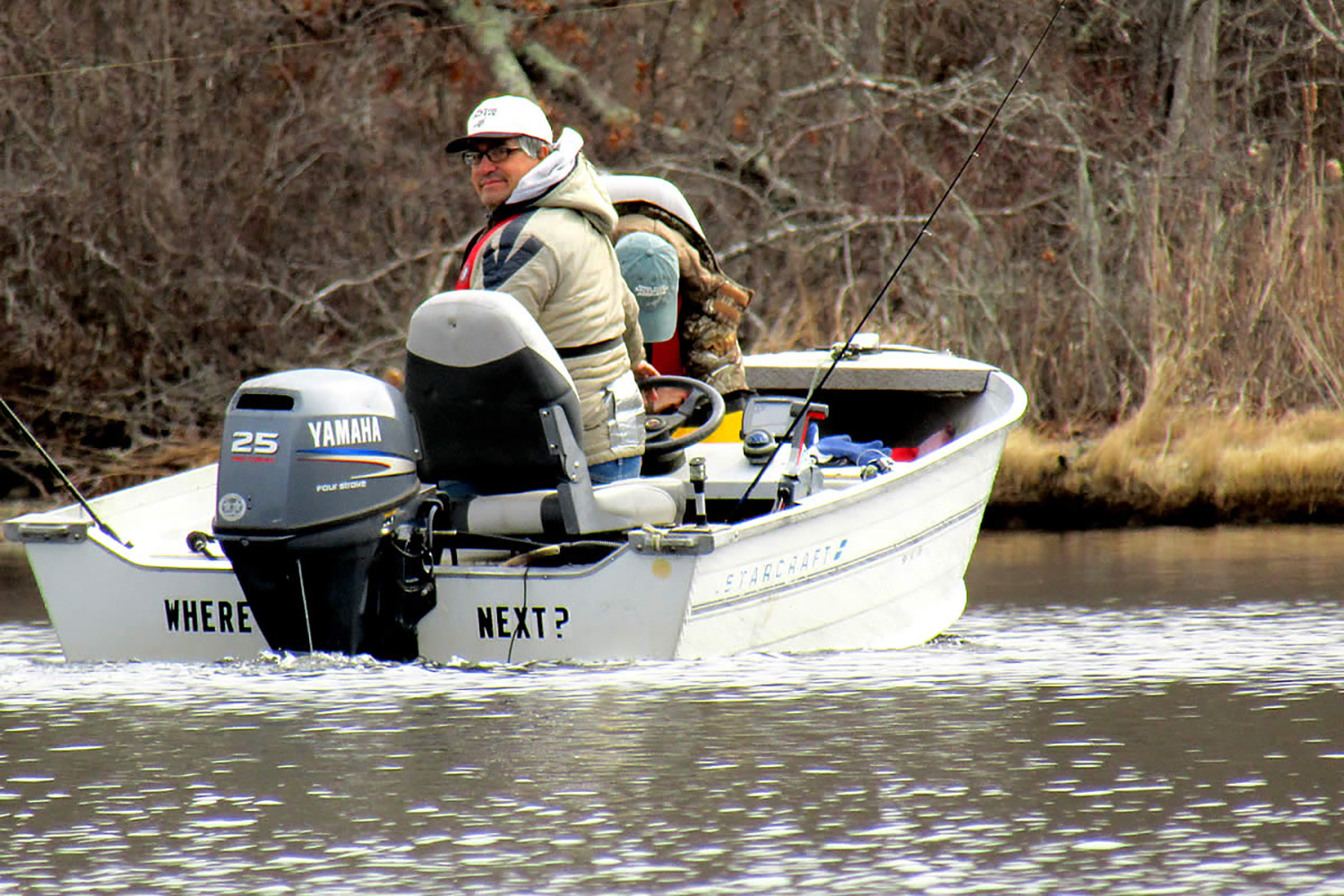
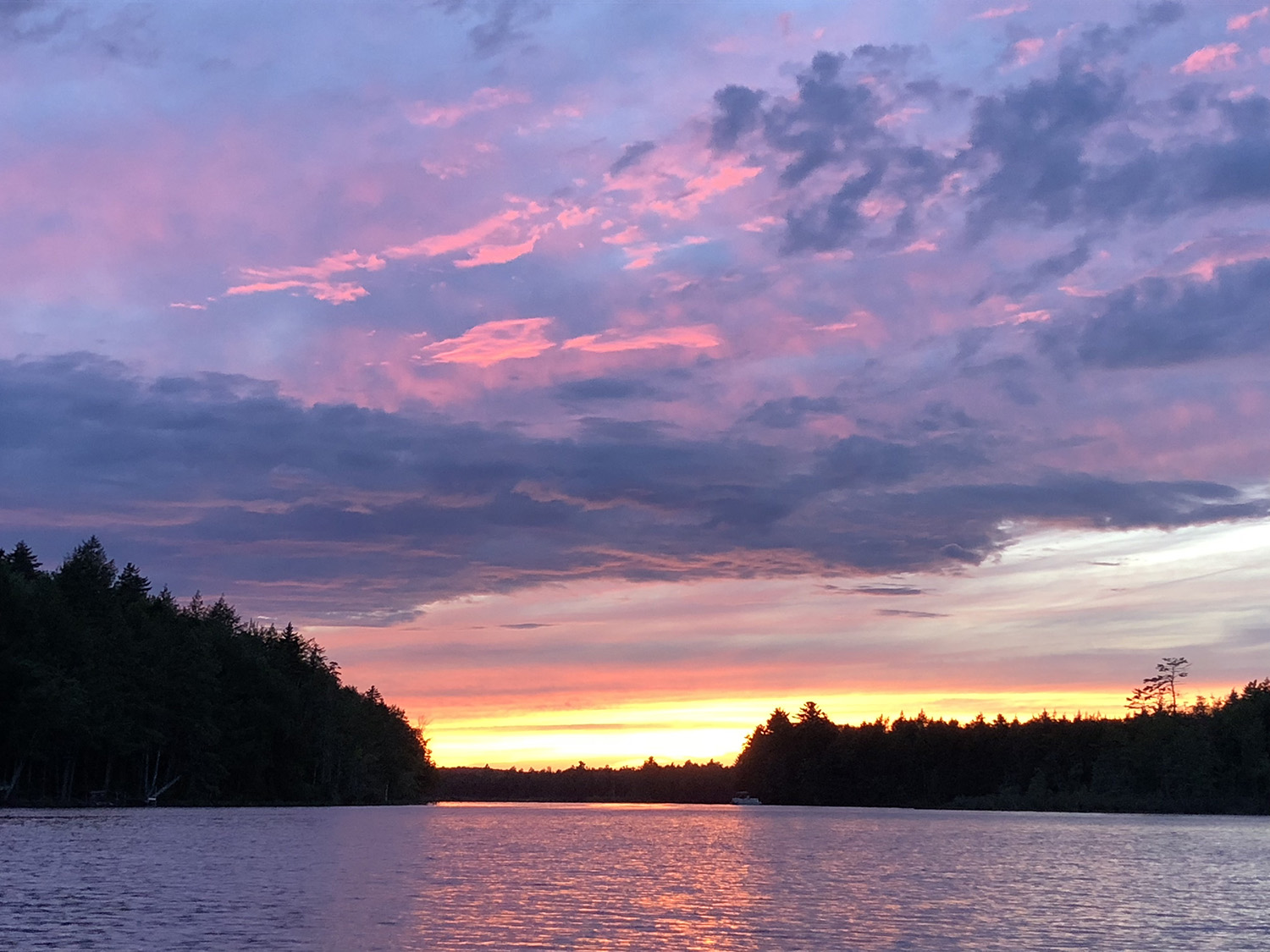
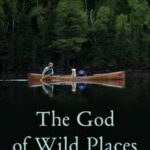
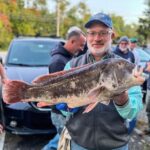
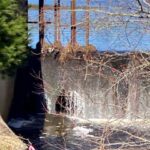

0 Comments